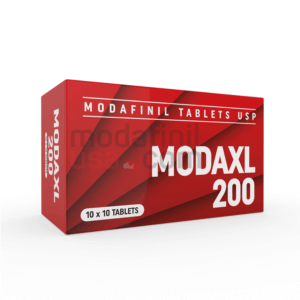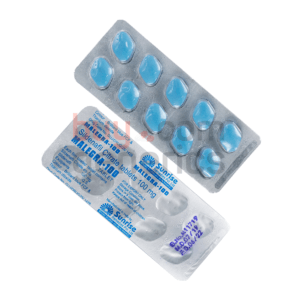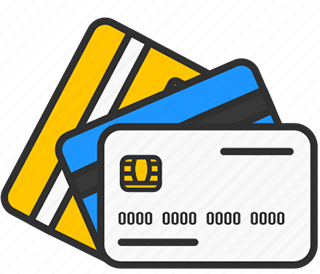All About Lyrica (Pregabalin) as a Painkiller
Lyrica, known by its generic name pregabalin, stands as a strong & prominent medication in the realm of pain management and neurological conditions. This pharmaceutical agent has garnered attention for its efficacy in alleviating various types of pain and treating specific neurological disorders. Pregabalin, originally developed as an antiepileptic drug, has expanded its scope to become a vital component in managing conditions like fibromyalgia, diabetic neuropathy, shingles-related nerve pain, spinal cord injuries, and partial-onset seizures.
This comprehensive guide aims to explore the multifaceted aspects of Lyrica as a painkiller and its diverse applications in treating debilitating conditions. Besides, the guide delves into the specific uses of Lyrica, shedding light on its mechanisms of action, efficacy, and considerations for its use. Additionally, this guide provides essential tips for individuals considering or already using Lyrica, ensuring safe and effective medication management. Let’s dive in.
What Is Lyrica?
Lyrica is a medication belonging to the class of drugs called anticonvulsants or antiepileptic drugs [1]. Initially developed to manage epileptic seizures, the med is good at treating various forms of chronic pain and specific neurological conditions. Pregabalin works by binding to calcium channels in the central nervous system, affecting the release of certain neurotransmitters in the brain. This mechanism helps reduce the hyperactivity of nerve cells, calming overexcited nerves and potentially reducing pain signals sent to the brain. By modulating these neurotransmitters, particularly gamma-aminobutyric acid (GABA), Lyrica painkiller can decrease abnormal electrical activity in the brain, thereby alleviating seizures and managing certain types of pain.
You may ask: “Is Lyrica a controlled substance?” Certainly, pregabalin is a Schedule V controlled substance, the lowest schedule for abuse potential [2]. Like most medications, Lyrica may cause negative effects. Common negative effects comprise dizziness, drowsiness, blurred vision, weight gain, dry mouth, and swelling in the extremities. More severe side effects can include mood changes, suicidal thoughts, allergic reactions, and changes in heart rhythm [3]. Individuals with a history of drug abuse or mood disorders should use Lyrica cautiously due to its potential for abuse and mood-altering effects.
What Is This Drug Used For?
Lyrica is a versatile medication utilized for various medical conditions, primarily focusing on pain management and the treatment of specific neurological disorders. Its wide-ranging applications have made it an essential medication in the field of pain relief and neurological care. Let’s explore the specific conditions for which Lyrica is commonly prescribed [4]:
Pain Caused by Fibromyalgia
Fibromyalgia is a chronic disorder characterized by widespread musculoskeletal pain, fatigue, sleep disturbances, and tenderness in specific areas of the body, known as tender points. The exact cause of fibromyalgia remains unclear, but it’s believed to involve abnormalities in pain processing within the central nervous system, amplifying painful sensations and affecting how the brain processes pain signals. The med is FDA-approved for managing the pain associated with fibromyalgia.
Lyrica can significantly reduce pain and improve sleep quality in individuals suffering from fibromyalgia. It’s been observed to decrease pain scores, increase pain thresholds, and improve overall functioning, allowing individuals to better manage their daily activities despite the persistent pain associated with fibromyalgia.
Nerve Pain in People with Diabetes (Diabetic Neuropathy)
Diabetic neuropathy refers to nerve damage caused by diabetes, leading to tingling, numbness, burning sensations, or pain, typically affecting the feet and legs. Lyrica is used to alleviate nerve pain associated with diabetic neuropathy. It helps manage symptoms such as tingling, numbness, and pain in the feet and legs caused by prolonged high blood sugar levels. By modulating neurotransmitters in the brain, Lyrica reduces abnormal nerve signals, offering relief from discomfort.
Nerve Pain After Shingles
Nerve pain after shingles, termed postherpetic neuralgia (PHN), is persistent and often severe pain occurring after a shingles outbreak. It arises due to nerve damage caused by the varicella-zoster virus, resulting in neuropathic sensations like burning, stabbing, or continuous aching pain. Lyrica (pregabalin) has emerged as an effective treatment for managing PHN by modulating nerve activity and reducing the transmission of pain signals. Consultation with a healthcare professional is crucial for accurate diagnosis, proper medication use, and dosage adjustments to alleviate the debilitating effects of PHN and improve the quality of life for affected individuals.
Spinal Cord Injury
Spinal cord injury (SCI) refers to damage to the spinal cord resulting in a loss of sensation, movement, or function. This injury, often caused by trauma, can lead to paralysis, altered sensory perception, and impaired bodily functions depending on its severity and location.
Effects of SCI include loss of voluntary muscle control, altered sensations, and complications like pressure sores or urinary tract infections due to immobility. Lyrica (pregabalin) is used to manage neuropathic pain associated with SCI. It helps alleviate chronic neuropathic pain by modulating nerve activity, thus improving individuals’ quality of life by reducing discomfort. However, Lyrica does not reverse spinal cord injury or restore lost function. Treatment for SCI involves a multidisciplinary approach, combining medication, physical therapy, and rehabilitation to address individual needs.
Partial Onset Seizures
Partial-onset seizures, also known as focal seizures, originate in a specific area of the brain and result from abnormal electrical activity. These seizures can be simple (without consciousness impairment) or complex (with altered awareness). Lyrica is an FDA-approved medication used as an adjunctive therapy for adults with partial-onset seizures. It works by modulating neurotransmitters and reducing abnormal brain activity. When combined with other antiepileptic drugs, Lyrica helps control and lessen the frequency of partial-onset seizures. Proper medical guidance and monitoring are crucial when using Lyrica to manage seizures, as dosage adjustments may be necessary, and side effects like dizziness or drowsiness can occur.
Some Tips for Taking Lyrica (Pregabalin)
Taking Lyrica requires careful adherence to specific guidelines to ensure its safe and effective use. First and foremost, it’s compulsory to follow the prescribed dosage provided by your physician. This dosage is tailored to your specific condition, and any adjustments should only be made under the guidance of your doctor. Abruptly changing the dosage or discontinuing Lyrica without medical consultation can lead to adverse effects or a resurgence of symptoms.
The appropriate dosage of Lyrica can vary based on several factors, including the medical condition being treated, individual response to the medication, and other health considerations. It’s crucial to follow the dosage prescribed by your physician, and the dosage may be adjusted over time to achieve the best therapeutic effect while minimizing potential side effects.
For different medical conditions commonly treated with Lyrica [5][6]:
- fibromyalgia: The typical starting dosage for fibromyalgia is usually 75 mg taken orally twice daily (150 mg per day). Your physician may gradually increase the dosage to Lyrica 300 mg per day based on individual response and tolerability;
- nerve pain in people with diabetes: The initial dosage for neuropathic pain might start at 50 mg 3 times a day (150 mg per day) or 75 mg twice daily (150 mg per day). This dosage might be gradually increased to 100 mg three times a day (300 mg per day) based on individual needs;
- partial-onset seizures: The typical commencing dosage for adjunctive therapy in treating partial-onset seizures in adults is Lyrica 150 mg per day divided into 2 or 3 doses. Your physician may raise the dosage to 600 mg to 900 mg per day based on individual response and tolerability;
- postherpetic neuralgia: The suggested commencing dosage for relieving nerve pain after shingles is typically 75 mg taken orally twice daily (150 mg per day). Depending on your response and tolerance, the dosage might be increased to 150 mg taken orally twice daily (300 mg per day) after an initial few days;
- spinal cord injury: There isn’t a specific FDA-approved dosage for spinal cord injury-related pain; however, the dosage for neuropathic pain is usually similar. It might begin at 50 mg taken orally 3 times a day (150 mg per day) or 75 mg taken orally twice daily (150 mg per day), with potential upward titration based on individual needs and tolerability.
It’s important to take Lyrica exactly as prescribed by your doctor. Avoid adjusting the dosage on your own without consulting your healthcare provider. Also, doses higher than the recommended amount can increase the risk of adverse effects without necessarily providing additional benefits. If you forget to take a dose, take it once you remember. However, if your next scheduled dose is approaching, skip the missed one and resume your regular dosing routine. Never double up on doses to make up for a missed one.
Staying hydrated is essential while using Lyrica. Drinking an adequate amount of fluids helps prevent potential side effects such as constipation or digestive issues that might arise from dehydration. Avoiding alcohol and sedatives is crucial while on Lyrica. Consuming alcohol or using sedatives concurrently with Lyrica can intensify dizziness or drowsiness, increasing the risk of accidents or falls. Avoid sudden discontinuation of Lyrica without consulting your doctor, as this can lead to withdrawal symptoms or a return of symptoms that the medication was managing.
Maintaining open communication with your healthcare provider throughout your Lyrica treatment is crucial. Inform your doctor about all medications, supplements, or herbal remedies you’re taking, as they might interact with Lyrica, affecting its efficacy or causing adverse reactions.
Where to Buy Generic Pregabalin Online at a Cheap Price?
Within the expansive realm of online pharmacies, caution is paramount due to the prevalence of numerous rogue platforms that masquerade as genuine sellers. These fraudulent entities, often adorned with meticulously designed websites and falsified positive reviews, deceptively claim to offer authentic medications. However, customers frequently encounter the harsh reality of receiving either no shipment at all or counterfeit and ineffective drugs upon completing a purchase.
In this landscape, our pharmacy emerges as a beacon of trust and reliability among legitimate vendors. With a wealth of positive reviews across reputable platforms, we have earned recognition for its commitment to providing genuine, high-quality medications. Prioritizing customer satisfaction, we offer not just top-notch products but also secure transactions, swift deliveries, and responsive customer support.
BuyGenerics.com specializes in delivering top-quality generic medications sourced from India. Our extensive range includes Lyrica, Ivermectin (Iverheal 3mg, Emectin 12mg, etc.), Zopiclone (Zop 7.5mg, Zopisign 10 mg), Fluconazole (Zocon 150 mg, Fluconaz 50 mg, Diflucan 200mg), Azithromycin (Azeetop 250 and 500 mg), Metronidazole, Hydroxychloroquine, and more, conveniently shipped directly to your doorstep. With free domestic shipping to the USA, UK, and Australia on top-selling drugs, we ensure unbeatable deals.
Flexibility is key in our payment methods, offering multiple options like Zelle, PayPal, or a 20% discount with Bitcoin. Returning customers are rewarded, and exceptional customer service remains a constant.
BuyGenerics makes prescription refills hassle-free and affordable, allowing orders without a doctor’s prescription for private and efficient health management. Our pharmacy ships international orders from its distribution hubs located in Mumbai, India, Dubai, United Arab Emirates, or Singapore, servicing most parts of the world. Typically, deliveries to destinations like the U.S., U.K., and Australia take approximately 7-12 business days, while other countries may expect delivery within 10-18 business days.
First-time customers are welcomed with a $10 discount. Exclusive offers and updates are available through the newsletter, featuring bulk purchase coupons and rare seasonal offers. To save more money, ensure to use the coupon codes given by our pharmacy – the more tabs ordered, the lower the product cost.
Conclusion
Lyrica has emerged as an invaluable aid in handling chronic pain ailments and specific neurological disorders. Renowned for its capacity to regulate nerve signaling and mitigate hyperactivity in nerve cells, it stands as a viable solution for individuals grappling with various forms of enduring pain or seizures. Nevertheless, it’s imperative that its usage remains under the supervision of a healthcare professional to ensure safe and suitable treatment. Ultimately, BuyGenerics offers Lyrica online at an affordable cost without the need for a prescription. As a reliable vendor, we ensure access to genuine medications, swift deliveries, a user-friendly platform, secure transactions, and responsive customer support, making us a reputable choice for purchasing Lyrica and other medications.
References
- Lyrica. Medically reviewed by Sophia Entringer. Retrieved: November 20, 2023. Drugs.com.
- Is Lyrica a controlled substance / narcotic? Medically reviewed by Leigh Ann Anderson. Retrieved: November 20, 2023. Drugs.com.
- Lyrica (pregabalin). By Alex Brewer. Medically reviewed by Dena Westphalen. Retrieved: November 20, 2023. Medicalnewstoday.com.
- What is Lyrica used to treat? Medically reviewed by Leigh Ann Anderson. Retrieved: November 20, 2023. Drugs.com.
- Lyrica Dosage. Medically reviewed by Drugs.com. Retrieved: November 20, 2023. Drugs.com.
- All About Lyrica’s Dosage. By Dedra Weiss. Medically reviewed by Damilola Omopariola. Retrieved: November 20, 2023. Healthline.com.








![How to Get Viagra in the US Without Prescription [Super-Fast Shipping]](https://551a1c12.rocketcdn.me/wp-content/uploads/2023/11/how-to-get-viagra-in-the-us-without-prescription-super-fast-shipping-100x100.png)







